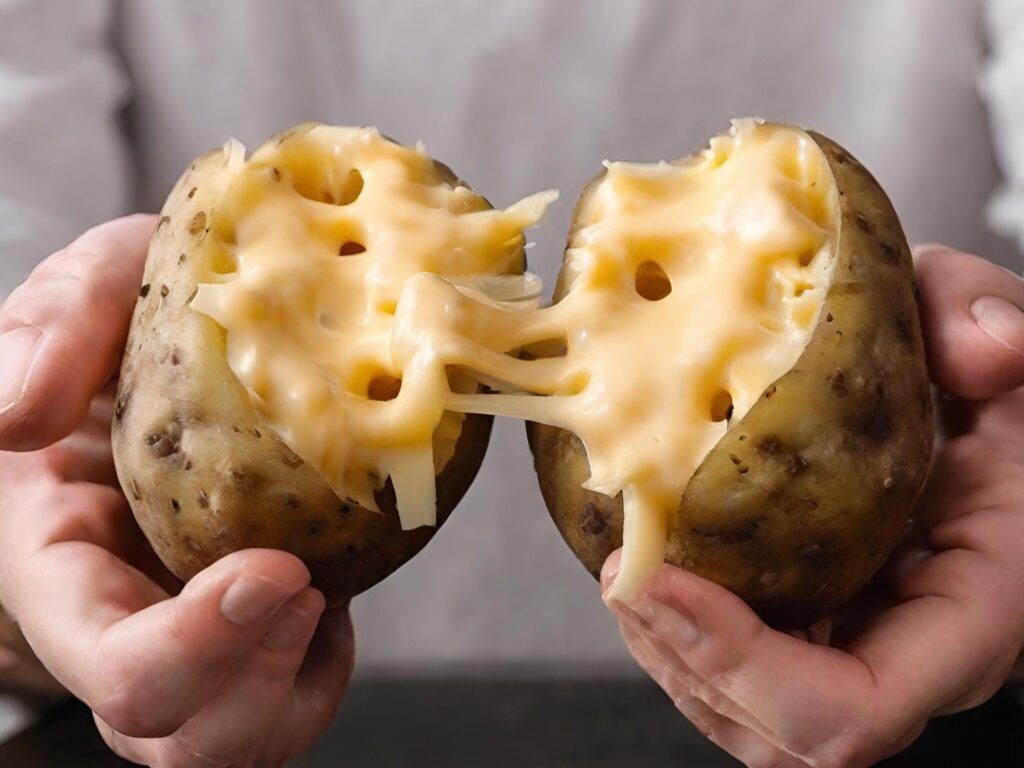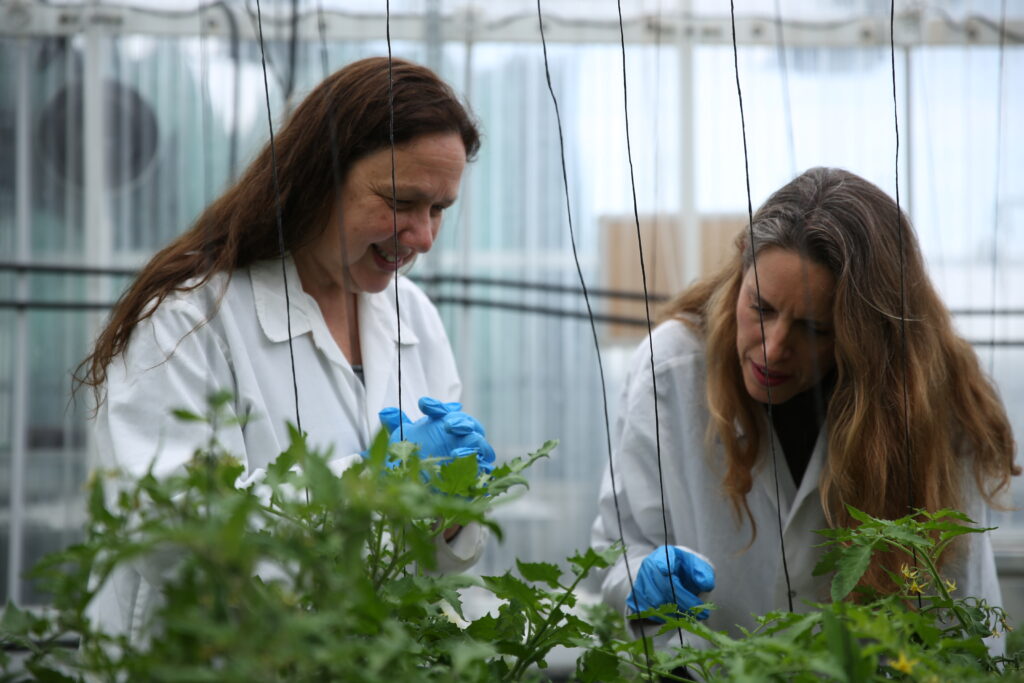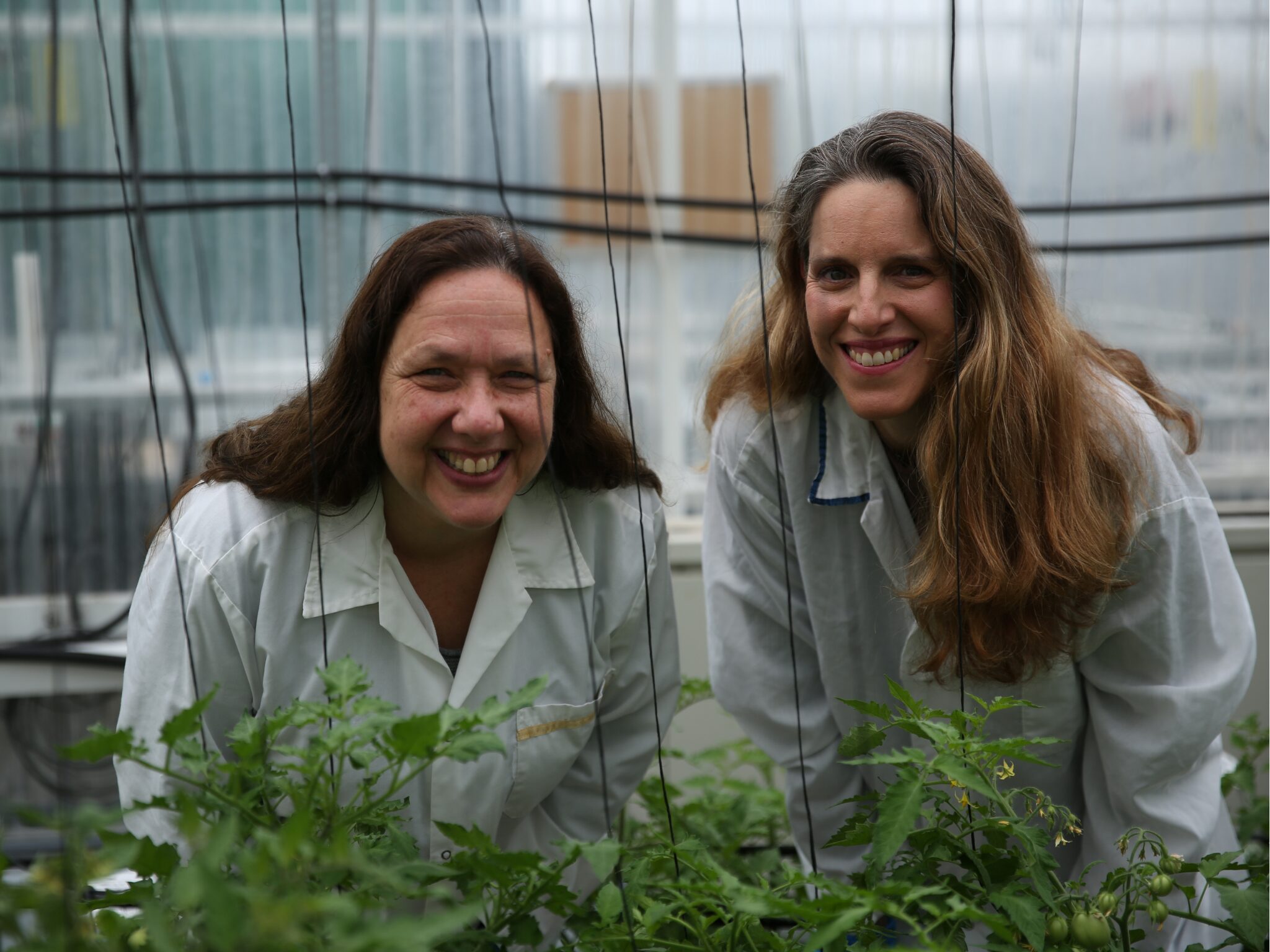Molecular Farming Startup Finally Foods Emerges From Stealth with Pre-Seed Funding to Develop Casein Proteins
4 Mins Read
Israeli startup Finally Foods has emerged from stealth with a pre-seed investment from The Kitchen FoodTech Hub to develop proteins from potatoes via molecular farming, starting with casein.
Established by computational biology company Evogene and The Kitchen FoodTech Hub, the investment arm of food giant Strauss Group and the Israeli Innovation Authority, Finally Foods is an AI-driven company that leverages molecular farming tech to produce animal-derived proteins from plants.
The company essentially modifies plants into bioreactors that can produce animal proteins in a sustainable and cost-effective manner, and is starting with casein, the main protein found in dairy. It’s known for its emulsifying properties, preventing water and fat from separating and lending cheese its melty and stretchy attributes.
While the amount of capital injected was undisclosed, this marks The Kitchen’s first investment into molecular farming. “The Kitchen has been investing in FoodTech and specifically in alternative proteins since 2015. Our experience shows that when it comes to protein expression and manufacturing, one technology does not fit all,” said the hub’s chief business officer, Amir Zaidman.
“Precision fermentation might be the right solution for some applications, biomass fermentation for others, and cell cultivation for yet another set of alternatives. We strongly believe that molecular farming has an important role to play in the mix of technologies that will enable a cleaner, more sustainable future for food production. We have been waiting for the right opportunity to invest in this space and when we met Finally, we felt this is it.”
Producing casein micelles through potatoes

Finally Foods was co-founded by CEO Dafna Gabbay and CTO Basia J Vinocur, who was formerly the VP of R&D at Evogene. It taps into Evogene’s GeneRator AI technology to optimise its production process by enabling short R&D cycles, more efficient extractions, and accelerated go-to-market plans.
Evogene holds around a 40% stake in the company, with the rest of the ownership divided between the co-founders and The Kitchen.
To produce its casein, the company elected to use potatoes as the plant source. “It meets several key parameters that we identified to allow an efficient production, including high yield in the field and an effective protein extraction,” said Gabbay. “We believe a potato will serve as the optimal ‘bioreactor’ for a complex protein such as casein.”
She added that it was The Kitchen that identified the “unmet need” for a functional animal-free casein protein. “Our goal is to express in one plant all four sub-units,” she explained. In milk, the four kinds of casein proteins fold into a spherical structure known as a micelle, where they are suspended in a highly hydrated solution and bound together with minerals like calcium.
“But as they say, ‘perfect is the enemy of good’, so if we see down the road that a micellar protein is reached with fewer sub-units, we’ll go for it,” Gabbay said.
Described by industry think tank the Good Food Institute as the fourth pillar of the alternative protein world, molecular farming entails modifying the cells of plants – instead of microbes or animals, as is the case in cultivated proteins or precision fermentation – to enable them to replicate animal proteins, which can be harvested from leaves or other plant tissues.
It offers some key advantages over other forms of alternative protein, especially in terms of cost and scalability, given that it doesn’t need expensive bioreactors for larger manufacturing amounts. Since plants are the natural bioreactors here, this tech needs more fields for plant cultivation. “Molecular farming represents a catalyst towards global food security and a more sustainable future,” said Gabbay.
AI experience and licensed tech sets Finally Foods apart

Finally Foods isn’t the only startup using potatoes to produce animal proteins – fellow Israeli player PoLoPo is doing the same for egg proteins. Many others – including Moolec, Nobell Foods, Mozza, Miruku, Tiamat Sciences, Bright Biotech and ORF Genetics – have identified molecular farming as a viable solution for producing sustainable analogues to animal products, with the market tipped to reach $3.5B by 2029.
Finally Foods operates as a B2B supplier, identifying itself as an “ingredient company”. “Finally is a platform technology,” explained Gabbay. “We first focus on casein, [but] haemoglobin and other proteins will follow.”
She remarked that licensing Evogene’s proprietary AI engines gives the startup a competitive advantage. “That will allow us to significantly shorten time to market, as most of the planning will be done in the lab before we get to the field,” she said. Additionally, she noted that Vinocur’s 17-year stint at Evogene is a major differentiator, “as the key to AI is not just the access to the vast data, but also the experience in what questions to ask it”.
“Finally is one of the rare cases where we see an extremely strong founding team, in Dafna and Basia, coupled with a proven technology platform based on the leading AI engine of Evogene,” said Zaidman.
Evogene CEO Ofer Haviv, meanwhile, is optimistic about the possibilities arising from his firm’s tech. “By harnessing the power of our GeneRator AI tech engine, molecular farming has the potential to revolutionise the food industry and promote healthier diets worldwide.”
Asked about the company’s five-year plan, Gabbay outlined that the team has ambitious goals. “We should have at least two proteins in the market, and should be working on others as well.”



